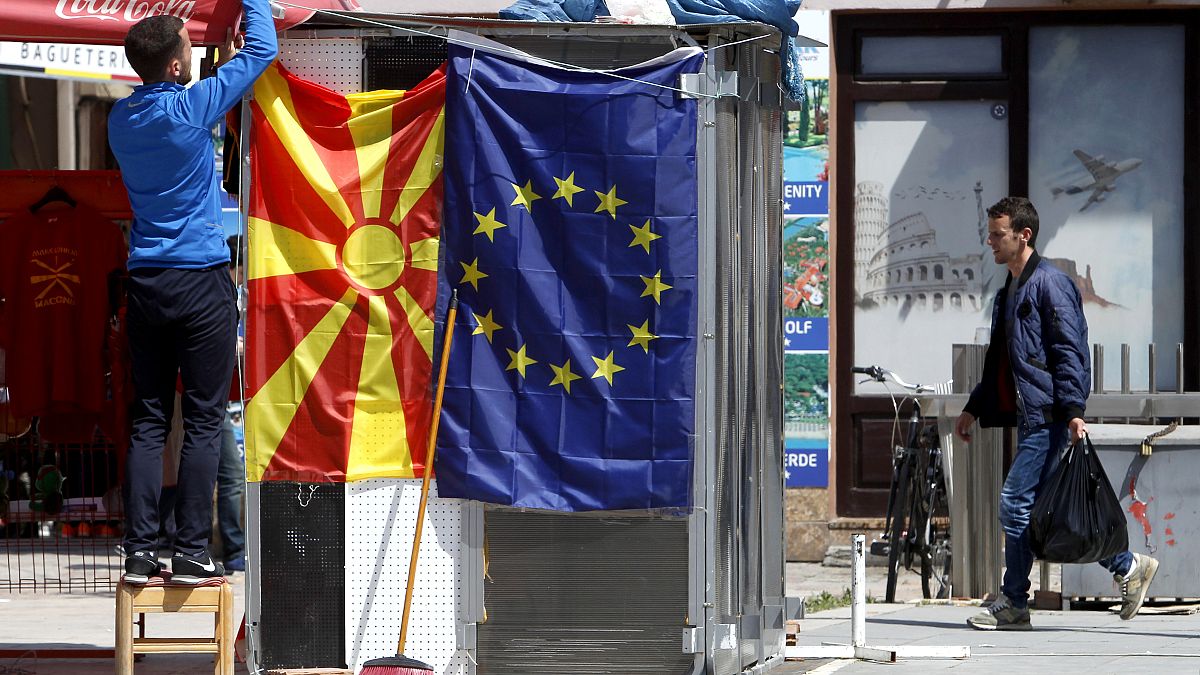In a recent development, both the president and prime minister of North Macedonia have criticized the obstacles created by the European Union in response to a disagreement with Bulgaria over Balkan history, language, and culture. The conservative Prime Minister Hristijan Mickoski expressed his frustration with the EU’s attempt to dictate terms to North Macedonia and insisted that he would not tolerate any further delays in the country’s membership talks with the EU. The EU ambassadors meeting in Brussels reportedly decided to proceed with Albania’s EU accession process separately from that of North Macedonia, a divergence from the previous joint progress. The European Commission has clarified that each country will move forward at its own pace based on meeting the necessary criteria.
North Macedonia and Albania became EU candidates two decades ago, yet their accession talks were halted due to various disputes. In North Macedonia’s case, a disagreement with Bulgaria over Balkan history, language, and culture led to delays in the country’s EU bid. The previous government attempted to address the issue by agreeing to insert a reference to a Bulgarian ethnic minority in the constitution, but the parliamentary majority needed for this change was lacking. The new conservative government under Mickoski has stated that it will only amend the constitution if Bulgaria agrees to support North Macedonia’s EU membership first.
Prime Minister Mickoski criticized the EU’s demands, referring to them as unfair and a form of dictation. He objected to linking North Macedonia’s EU aspirations with Bulgaria’s conditions and expressed his refusal to accept such terms. President Gordana Siljanovska-Davkova also highlighted the lengthy and challenging journey for North Macedonia towards EU membership, likening it to waiting for Godot. Despite positive reports from the European Commission over the years, the country has faced numerous obstacles and delays in achieving EU candidate status.
The country’s path to EU membership has been hindered in the past by disputes with neighboring countries, such as Greece, over historical and cultural issues. The resolution of the name dispute with Greece in 2018, which led to North Macedonia changing its name from Macedonia, was a significant step towards easing tensions and progressing in its EU bid. The opposition leader Venko Filipche criticized Mickoski’s government for the recent setback in North Macedonia’s EU accession process, describing it as a missed opportunity that will have lasting implications for the citizens and future generations.
The ongoing disagreements with Bulgaria over Balkan history and culture have become major stumbling blocks in North Macedonia’s EU accession talks. The country’s leaders have voiced their frustration with the EU’s involvement in dictating terms and setting conditions for progression. Despite positive developments in recent years, North Macedonia continues to face challenges and delays in its EU bid, raising concerns among its leadership and citizens. The resolution of these disputes and the alignment of interests between North Macedonia, Bulgaria, and the EU will be crucial in determining the future of North Macedonia’s EU membership.











